
How much does it cost to replace a windscreen?
This used to be a simple question since most car windscreens were made from the...
Browse over 9,000 car reviews
.jpg)
Q: What are the most reliable car brands you can buy in Australia?
A: It’s a heck of a question – but a popular barbecue discussion point - and there’s no definitive answer, mainly because there are so many variables (not to mention the sheer number of available car makes and models).
And those start with your definition of reliable. The importance of reliability is also linked to the individual’s personal totem of car virtues, and for some car owners, it’s revealed that reliability sometimes rates lower than performance, prestige and standard equipment.
So let’s tackle the tough one first: What’s your definition of reliability? Is it the ability to start first time, every time and get you where you need to be? Or is it that every single piece of standard equipment is still working in 10 or 20 years’ time?
Or perhaps you judge reliability by how a car feels after a few years of pounding the roadways. Is a car with a tendency to break door handles off an unreliable one? It might still drive perfectly for decades, but does a need to replace door handles mark it as a lemon?
And are you a perfectionist owner who resents every single foible and failure, or are you a realistic consumer who understands that a modern car is an incredibly complex piece of equipment with literally thousands of fail-points built into it?

It's pretty easy to see that reliability is in the eye of the beholder. But if we take the classical view; that of the car’s ability to take you where you need to go safely, and in comfort, every single time, and without mechanical intervention beyond regular maintenance, then we can tackle the question of this country’s most reliable brands.
But first; what are the factors that affect reliability? Well, Australia’s climate is one. Cars that often perform faultlessly in Europe sometimes reveal themselves to be a bit fragile here with our extreme heat cycles.
How a vehicle is driven is another factor. A work truck that is fully loaded every day of its life (not to mention driven by the apprentice from time to time) is a fair chance to have more problems than a pampered coupe with a sensible middle-aged driver.

The same goes for how a particular car is maintained. A properly serviced car will always be more reliable than one that is neglected.
But does that mean high-end cars that are typically serviced well are fundamentally more reliable than cheaper, older models that might be mistreated from time to time?
Not necessarily, and an example of a brand known for its reliability but that has been ill-treated over the years, will likely be less reliable than a well maintained example of a brand not so famous for reliability.

And perhaps this is where things get skewed a bit. While expensive brands tend to attract owners with enough cash to maintain the car properly, the same cannot always be said for cheaper brands.
Unfortunately, in Australia, carmakers aren’t required to publish consumer satisfaction or break-down statistics. Sure, these spread-sheets exist, but you and I don’t have access to them.
What we can do, however, is tap into the findings of a USA-based not-for-profit operation called Consumer Reports. This organisation keeps its own stats on reliability and publishes them for the world to see.

Consumer Reports’ annual car reliability findings are based on owner surveys and account for as many as 300,000 cars. And right there is the first qualification; surveys are more often responded to by disgruntled consumers than quietly, satisfied ones.
But allowing for that, the survey covers small problems like noisy brakes and interior rattles, as well as major mechanical failures and everything in between.
The findings have become a bit of a bible for students of car reliability, and we’re happy to share the latest findings here. But please remember, this is not a list of the most reliable car brands Australia deals in; this is a North American study.

Another word of warning: The findings address cars by brand, not individual models. So, some of the brands listed by Consumer Reports don’t necessarily offer the same models here that they do in North America.
Also, USA driving conditions are different to ours and US owner expectations can vary enormously from ours.
Historically, the US car market has exhibited a much more throwaway mentality than here, and that skews the perceived importance of long-term reliability.

That said, here’s what Consumer Reports reckon are the top most reliable car brands in its most recent (November 2022) survey:
You probably saw that coming, right? Toyota reliability is legendary and the company has built up a huge reputation for building cars that go the distance.
Even the move to some very popular hybrid driveline options hasn’t led to any tarnishing of that reputation.
The four-cylinder Camry engine is about the most reliable engine ever produced.
Here we go again… because, of course, Lexus is Toyota’s prestige brand. So you’d expect it to be reliable as well as well equipped, comfy and safe.
And it seems, it is. The long running LS Lexus range is considered by some to be one of the world’s most reliable cars.
Lexus reliability is a cornerstone of the brand’s image.
This might surprise a few people who don’t always rate the Bavarian brand too highly.
This could be a case of prestige cars getting better maintenance than there peasant peers, but either way, it’s good news for BMW.
Mazda has a great reputation for reliability around the world, and that’s borne out in this survey.
A policy of staying away from turbocharging in many of its models might make Mazda look a bit staid, but perhaps it has paid dividends here. The Mazda is also a relatively cheap reliable car brand.
Honda is a much bigger deal in North America than it ever has been here. But even decades ago, the brand was considered by some as one of Japan’s best car brands not to mention `Japan’s BMW’.
Maybe this is what they were talking about.
A lot of people who remember the old days wonder is Audi reliable? Early Audis weren’t so great, but the modern stuff has a great reputation, borne out in this car reliability ranking.
So much for the actual rankings, what about brands that are popular here? Let’s start with an easy one: Are Volvos reliable? Yes they are, and even though the brand has changed hands a few times, it seems Volvo has stuck to reliability standards that made it a well-regarded brand way back in the 1960s.
Are Subarus reliable? Another yes, and despite a few hassles with head gasket failures a few years ago, Subarus have a reputation for holding up well provided they’ve been properly maintained.
The ones to watch are sporty WRXs which may have led a pretty exciting life at the hands of a would-be rally driver.
Australia’s reliance on imported cars these days means the South Korean brands have been closely scrutinised. The good news is that Kia reliability and Hyundai reliability both seem good.

There have been a few issues with engines being replaced, but the companies involved have been careful to do the right thing by customers.
And what about the company that, at one time, made the best cars in the world? Are Mercedes cars reliable?
Fundamentally they seem to be, but they require specific maintenance to remain so. Part of that is because they’re such complex devices now, combined with the fact that the modern Benz range will always be compared with its bank-vault grandparents.
A couple of brands in recent years have had a few reliability issues, largely to do with technology rather than any inherent weaknesses.
Of those, we’d have to nominate some dual-clutch transmissions, particularly the dry clutch variants thereof.

Ford and Volkswagen owners have reported dramas with this tech. But, to be fair, Ford dropped the whole DCT thing as the safest way forward (after a global pummelling from owners and consumer advocate organisations) and VW has worked hard to improve its transmissions with good results.
Meantime, the driveability and efficiency advantages of the dual-clutch gearbox remain, and other manufacturers have since picked up the technology.
Cars with common-rail turbo-diesel engines and their diesel particulate filters have also come in for plenty of criticism in recent years.
Although it ranked very well in the US, in Australia, Toyota is one company that has not escaped the DPF blues.
So, why the discrepancy between the US and here? Possibly because many light commercial vehicles in the US use petrol engines, while pretty much all of Toyota commercials sold here are diesel-powered.

As for the least reliable car brands according to the US report, the brands sold here that did poorly were Mercedes-Benz, Tesla, and Volkswagen and Jeep.
Of course, for a variety of reasons, those results don’t necessarily line up with the Aussie experience, but when somebody asks are Jeeps reliable, the answer in recent years is a fairly negative one.
Jeep claims to be working hard on this, but the damage to the brand’s reputation in this country will be hard to turn around.

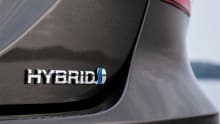

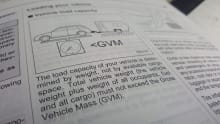
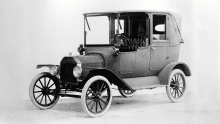



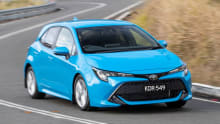
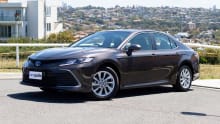
Comments